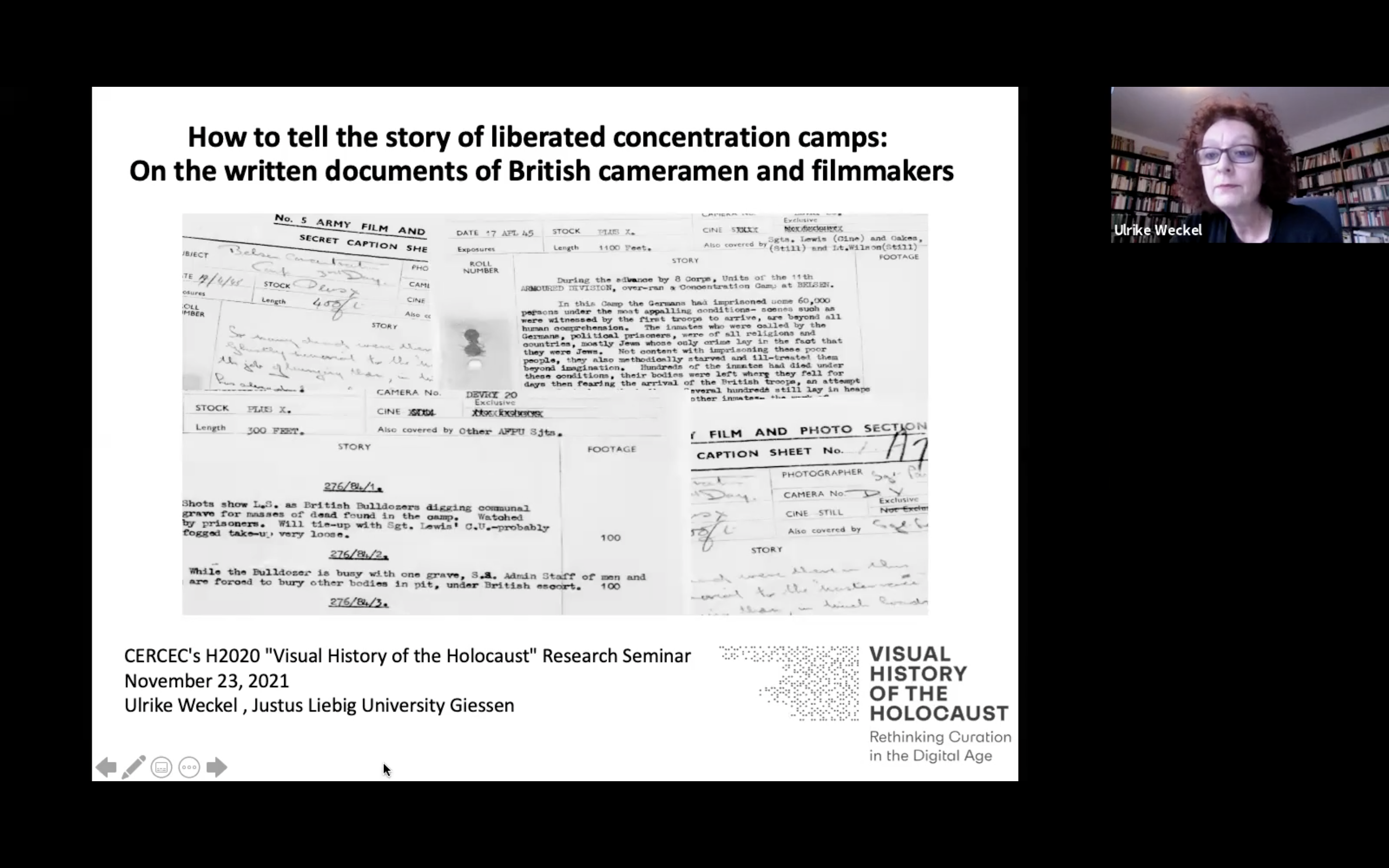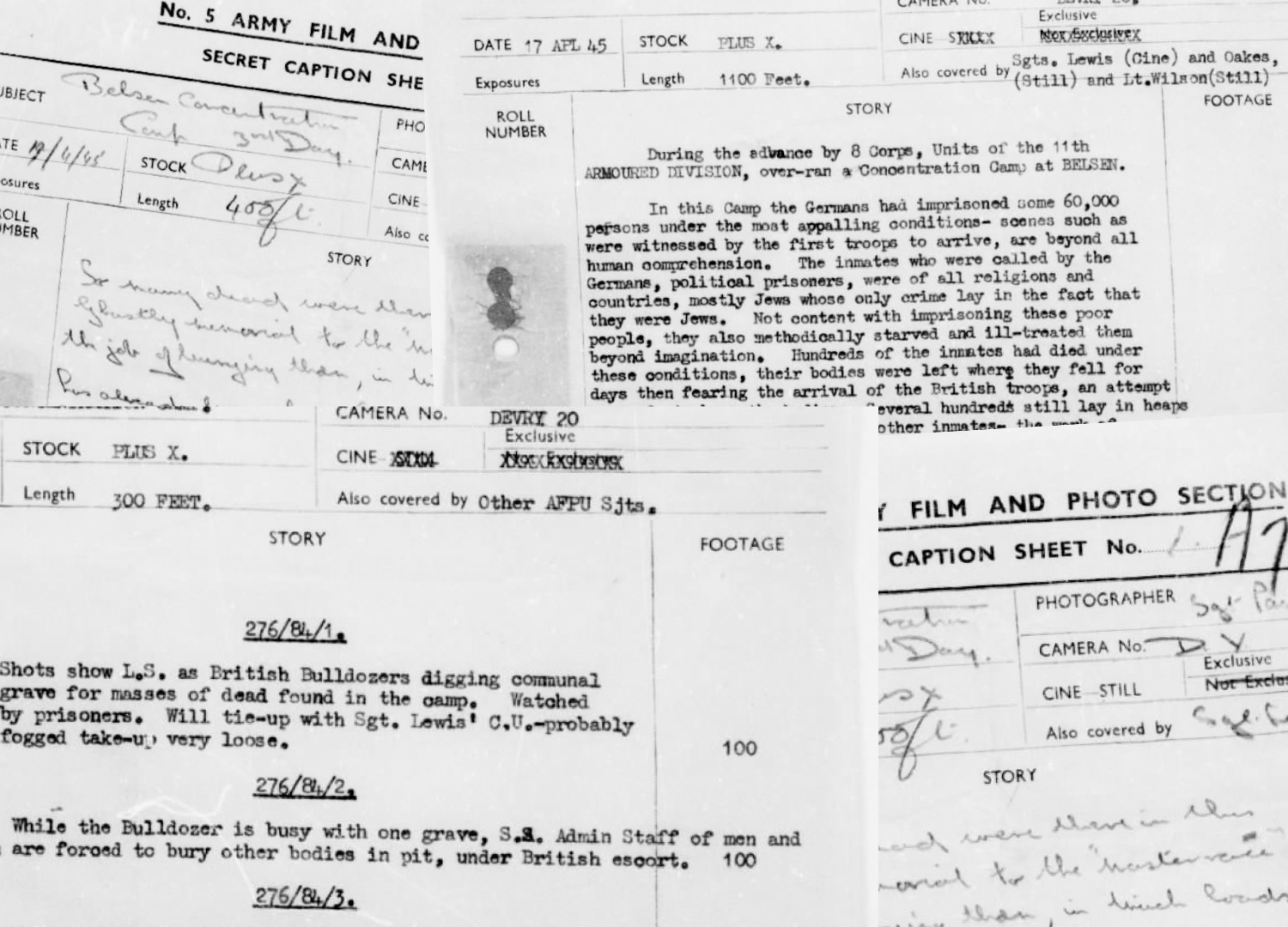Historians studying the making and screening of Allied atrocity films at the end of World War II are in the paradoxical position of knowing the most by far about the one film that was never finished or screened. It was the British, Sidney Bernstein’s team working in the Ministry of Information in London, who gave the most thought discerning the stories that footage of the liberation of concentration camps could tell and which it should tell to especially German audiences. Fortunately for historians, the team sketched its main conclusions on paper. It also sent memos to the Army Film and Photographic Unit describing the material they wanted. And the British cameramen at Bergen Belsen filled out caption sheets, detailing the contents of their footage and the circumstances in which they had shot it. The talk will explore what the written documents can tell us about cameramen’s and filmmakers’ perceptions of the shocking images and the sensitivity with which at least some of them considered their effects on contemporary audiences.
H2020 “Visual History of the Holocaust”. Research Seminar 2021–2022:
As part of the Horizon 2020 project “Visual History of the Holocaust”, this seminar focuses on film documents created by Soviet filmmakers during the liberation of Nazi-occupied territories. The history of the Holocaust in Eastern Europe, the literature on mass violence, and the history of still and moving images serve to contextualize this little-known corpus of Soviet film images documenting Nazi crimes. Participants are invited to examine the period from 1941 to 1947, and thus to consider the different phases in which the identity of the victims was explicitly discussed or ignored. The seminar aims to engage in a dialog about the visual traces of Nazi atrocities in Central and Eastern Europe and the USSR. The Research Seminar 2021–2022 is hosted by CERCEC and coordinated by Sarah Gruszka, Valérie Pozner, and Irina Tcherneva.
Registration:
For participation please register by sending an email (Subject: VHH Research Seminar Registration) to Irina Tcherneva (irina.tcherneva@palimpsestes.net).
Upcoming Sessions:
Wednesday, January 5, 2022, 16:00–18:00 CET
Efrat Komissar (Yad Vashem): “Analyzing visual ‘text’ – films taken by German soldiers in Poland”
Thursday, January 13, 2022, 16:00–18:00 CET
Vanessa Voisin (University of Bologna): “Soviet Footage of War Crimes, between Propaganda and Judicial Evidence, 1941–1946”
Thursday, March 24, 2022, 16:00–18:00 CET – postponed
Janina Struk (Independent Scholar): “Resistance: Securing the Photographic Evidence in Nazi Occupied Poland”
Thursday, April 28, 2022, 16:00–18:00 CET
Clara Royer (Sorbonne University): “Between Fiction and History: Ethical Questions during the Archival Research for the Film Project”
Thursday, June 9, 2022, 16:00–18:00 CET
Christophe Cognet (film director, screenwriter, author of the book Éclats. Prises de vue clandestines des camps nazis and of the documentary film À pas aveugles): “By filming, by writing. Photographic testimonies of the Nazi camps”
Thursday, June 16, 2022, 16:00–18:00 CET
Thomas Chopard (CERCEC): “Writing the history of the Holocaust and of mass-violence in Nazi-occupied Kharkov”


